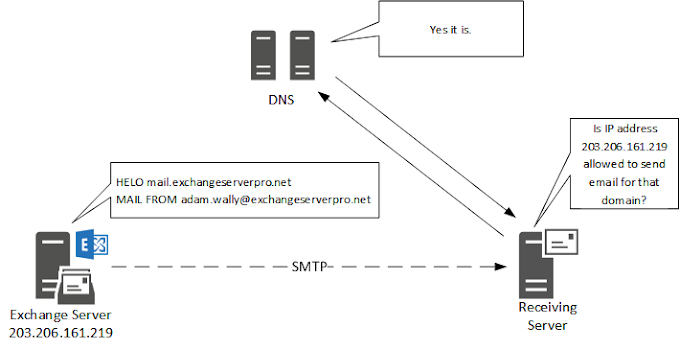SPF, DKIM, and DMARC are email authentication protocols used to prevent email spoofing and ensure the integrity of email messages. Here is a brief overview of each protocol:
SPF (Sender Policy Framework): SPF allows domain owners to publish a list of authorized mail servers that are permitted to send email on behalf of their domain. This helps prevent spammers from using a domain name to send unauthorized emails.
DKIM (DomainKeys Identified Mail): DKIM is an email authentication protocol that uses digital signatures to verify the authenticity of email messages. It allows email recipients to confirm that an email message was sent by an authorized sender and has not been tampered with.
DMARC (Domain-based Message Authentication, Reporting and Conformance): DMARC builds on SPF and DKIM to provide a more comprehensive email authentication solution. It allows domain owners to set policies for how their domain's emails should be handled if they fail SPF or DKIM checks, and provides reporting on email authentication activity.
These email authentication protocols are important for preventing email fraud and ensuring the integrity of email messages. Organizations may use these protocols in conjunction with other security measures such as spam filters and anti-virus software to protect their email systems from threats.





.png)






0 Comments